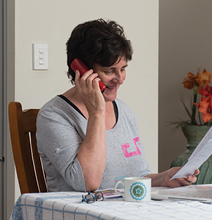 The European Parliament has adopted a report on the Erasmus+ programme and other tools to support life-long learning. The Erasmus+ programme centralises the programmes on training and education, formerly comprising Erasmus (students), Comenius (primary and secondary schools), vocational education and training (Leonardo Da Vinci) and adult education (Grundtvig). The Parliament deplores that especially vocational education and adult education have lost visibility in the programme. It acknowledges the training and upskilling needs of long-term unemployed and the role of senior citizens in training programmes.
The European Parliament has adopted a report on the Erasmus+ programme and other tools to support life-long learning. The Erasmus+ programme centralises the programmes on training and education, formerly comprising Erasmus (students), Comenius (primary and secondary schools), vocational education and training (Leonardo Da Vinci) and adult education (Grundtvig). The Parliament deplores that especially vocational education and adult education have lost visibility in the programme. It acknowledges the training and upskilling needs of long-term unemployed and the role of senior citizens in training programmes.
Importance of Erasmus+ for senior citizens
Some Erasmus projects under the adult education strand (formerly Grundtvig) have permitted important measures on adult education. For example, AGE members have conducted a Grundtvig project on reference budgets and their use in debt counselling. Currently, AGE member OVN is conducting one on active citizenship for seniors over 80. Adult education has however lost visibility and budget in the current Erasmus+ programme, often seen by outsiders as being only for higher education students. For AGE, Erasmus+ could however play an important role in providing vocational education and adult education to older job-seekers, thereby updating and formalising their skills and competences. Older retirees can also hugely benefit from learning partnerships under Erasmus+, as showcased by the ‘Active 80’ project.
A stronger role for adult education
 With its current report, the Parliament emphasises this important role. It emphasises that informal and non-formal learning contributes largely to tackling the challenges of reskilling and skills updating. It demands that continuous vocational education and training should be taken into account by the programme and that mobility retraining programmes should be open for unemployed people of all ages. The Parliament calls upon the Commission to publish a Green paper on vocational education, training and mobility and the recognition of skills and competences in Europe.
With its current report, the Parliament emphasises this important role. It emphasises that informal and non-formal learning contributes largely to tackling the challenges of reskilling and skills updating. It demands that continuous vocational education and training should be taken into account by the programme and that mobility retraining programmes should be open for unemployed people of all ages. The Parliament calls upon the Commission to publish a Green paper on vocational education, training and mobility and the recognition of skills and competences in Europe.
Skills recognition: a barrier to drawing the benefits from international mobility
An important issue in the field of lifelong learning is the certification and recognition of skills: member states have very different systems of valuing skills from informal (non-certifying courses) and non-formal (gained by experience) skills. Even for formal qualifications, acquired during an Erasmus+ scholarship, recognition is not a given. The Parliament highlights these misgivings and calls for a stronger recognition of this issue.
![]() AGE Platform Europe welcomes the Parliament report and its role in highlighting the importance of the Erasmus+ programme also for older citizens. Informal and non-formal education should have a greater role and its outcomes certified and recognised by a common framework, in order to value the rich experience of older workers. Erasmus+ has also an important role in supporting senior volunteering and therefore to develop active and thereby healthy ageing in Europe.
AGE Platform Europe welcomes the Parliament report and its role in highlighting the importance of the Erasmus+ programme also for older citizens. Informal and non-formal education should have a greater role and its outcomes certified and recognised by a common framework, in order to value the rich experience of older workers. Erasmus+ has also an important role in supporting senior volunteering and therefore to develop active and thereby healthy ageing in Europe.
For more information, please contact Philippe Seidel Leroy from the AGE Secretariat: philippe.seidel@age-platform.eu
Further information:
- European Parliament, Report on Erasmus+ and other tools to foster mobility in VET – a lifelong learning approach (2015/2257)
- Active 80plus Erasmus+ project: https://www.act-80plus.eu/
- Social Inclusion and Dignity in Old Age project : https://dignity-in-old-age.eu/






